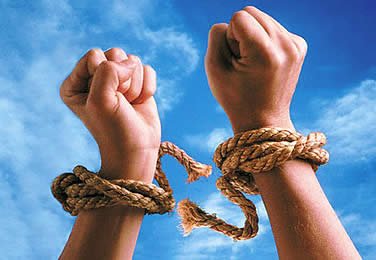
…in these words, “the motive force of society is the government”; once men consider themselves as sentient, but passive, incapable of improving themselves morally or materially by their own intelligence and energy, and reduced to expecting everything from the law; in a word, when they admit that their relation to the state is that of a flock of sheep to the shepherd, it is clear that the responsibility of the government is immense. Good and evil, virtue and vice, equality and inequality, wealth and poverty, all proceed from it. It is entrusted with everything, it undertakes everything, it does everything; hence, it is responsible for everything. If we are happy, it has every right to claim our gratitude; but if we are wretched, it alone is to blame …
Thus, there is not a single ill afflicting the nation for which the government has not made itself responsible. Is it astonishing, then, that each little twinge should be a cause of revolution?
— Frederic Bastiat
This is a lot like all human relationships, whether in the context of government, family, marriage/romance or business.
Once you cede all power (psychological or literal) to another person or entity, the tendency (logically and inevitably) is to hold that entity or person responsible for all that happens. It’s convenient and perhaps satisfying on one level, at least to many. But it undercuts the ability of the individual doing so to take charge of his or her own destiny and instead makes life a helpless and even depraved place where autonomy and achievement seem impossible.
Two sides of the same coin comprise this terrible error: On the one side, you blame others if those who are supposed to make it all right for you fail in their obligation. On the other side, you credit others for what were actually your own achivements or accomplishments.
What happens in human society — the economy, the society, the government — is ultimately a reflection of the mental mindset of most people. If people shed the need to externalize their problems, as well as their hopes for the future, and instead look to their own selves to accomplish and develop any potential greatness, or solve problems … then the case for a free society will follow. It’s fear of psychological independence that leads so many to reject freedom in favor of the supernatural and political soothing of those who preach “hope and change” in so many phony, hollow forms.
Bastiat, in his time, was deeply frustrated in his failed quest to achieve liberty and individual rights in 19th century France. Similar advocates of liberty face the same futility today. By and large, with rare exceptions throughout human history, freedom does not sell — not really. Sure, people want isolated side benefits of freedom. But rarely will they embrace the whole package, including the rather lonely self-responsibility freedom sometimes entails. Fear of freedom may be the greatest fear underlying psychological disorder that exists.
At the end of the day, it’s individual psychology and ultimately philosophy that determine the fate of human societies, because human societies are in actuality made up of nothing more than individuals. Individuals, that is, with thoughts, feelings, ideas, emotions and convictions. The nature of those ideas and emotions determine whom they choose as leaders, and whom they will tolerate as dictators.
If, after all these years of human civilization, freedom remains so elusive, maybe it’s time to start looking at what kind of individuals, values and beliefs actually can give rise to freedom. If you want to fight for freedom, maybe it’s time to start fighting for the qualities, attitudes, beliefs and emotional states that make freedom plausible.
